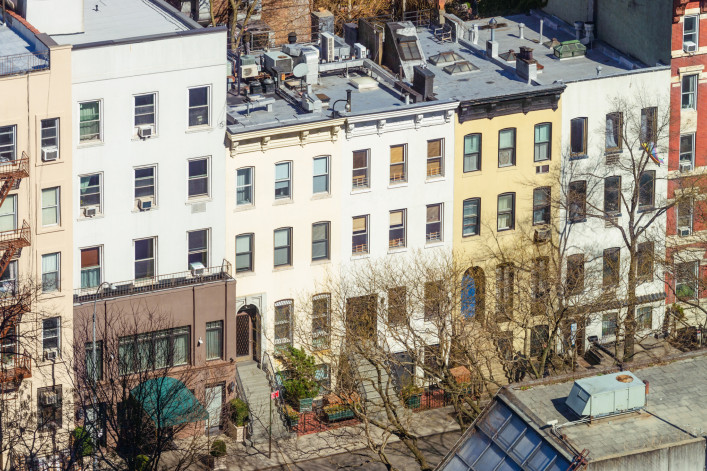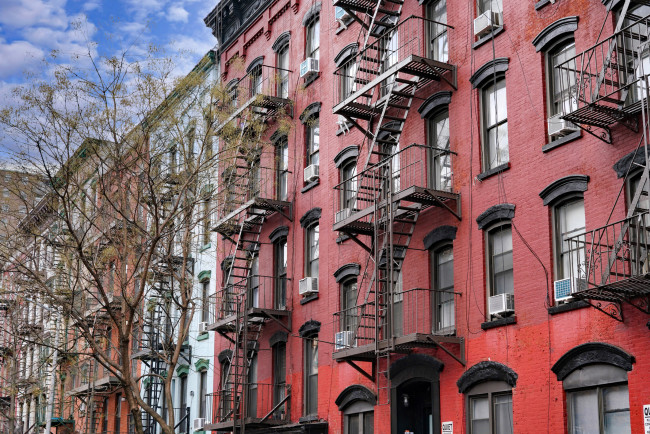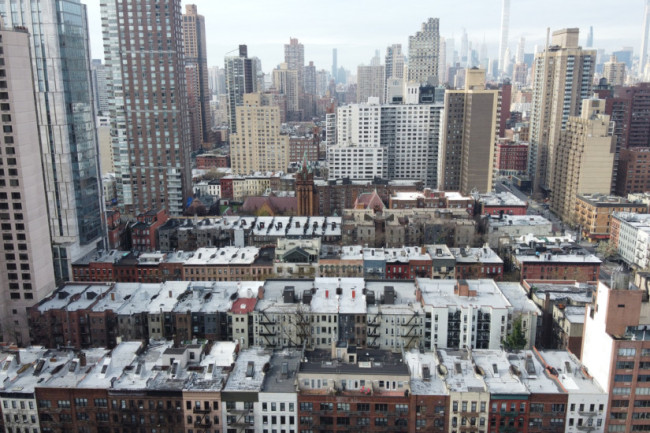Nearly one in five NYC renters fell behind on their rent last year
- About 18 percent of renter households in the metro area owed rent as of October 2023 per a new report
- Permit filings for new developments slowed last year as construction failed to keep up with demand

Developers filed far fewer permits for large multi-family buildings—those with more than 100 units—in 2023 than in 2022, according to a report from the state comptroller's office.
iStock
The rent is too damn high, and it’s putting some New Yorkers behind on their bills.
Roughly 18 percent of New York City metro area residents were behind on rent in October, higher than the national average of 12 percent, according to a report from State Comptroller Thomas DiNapoli.
While that’s an improvement from the pandemic period, the report highlights how rents have grown in the past decade, putting pressure on New Yorkers’ wallets.
“Housing costs in New York City and the surrounding suburbs have risen dramatically over the last decade,” DiNapoli said in a statement. “When we look at other major U.S. metropolitan areas, we see New York’s housing costs have grown at a greater rate. More than half of tenants in the city spend 30 percent of their income on rent, forcing them to make tough choices.”
An expensive, confusing rental market
NYC has never been particularly cheap, and 2023 was no exception.
Median asking rent on available apartments remained around $3,500 per month citywide in November, near its 2023 peak of $3,795, according to a separate report from NYC Comptroller Brad Lander. (Median rents did slip slightly towards the end of the year, before rebounding in December).
Over the last 10 years, rent has represented a growing share of New Yorkers’ budgets. The average metro area household spent around $18,000 annually on housing costs between 2011 and 2012, according to DiNapoli’s report. Between 2021 and 2022, the average household was forking over $30,300 per year, a 68 percent increase.
Higher rents were particularly pronounced during the pandemic. In 2021, a whopping 53 percent of NYC residents spent more than 30 percent of their income on rent. And 26 percent of tenants were behind on rent that same year, per DiNapoli’s report.
While fewer New Yorkers were behind on rent in 2023, the city still lags behind the national average and arrears at New York City Housing Authority buildings rose. The agency only collected 61 percent of rent payments as of November 2023, according to DiNapoli’s report.
Slowdown in new developments
New construction also slowed last year amid higher interest rates and the expiration of the 421-a affordable housing tax break in 2022.
Developers filed 9,523 permits for new buildings in NYC in the first eight months of 2023—an 85 percent drop from 2022. Permits for large multi-family buildings—those with more than 100 units—declined by 96 percent, according to DiNapoli’s report.
However, the city did manage to create or preserve 13,900 units of affordable housing through October 2023, according to the report. The city also closed on financing for 14,227 new affordable apartments throughout all of 2023, according to a separate announcement from Mayor Eric Adams.
But a slowdown in construction means the new housing isn’t enough to keep up with demand, according to DiNapoli.
“Many New Yorkers may continue to be priced out of their preferred neighborhoods without a substantial increase in the supply of affordable housing units for low- and moderate-income households,” the report reads.
You Might Also Like



























